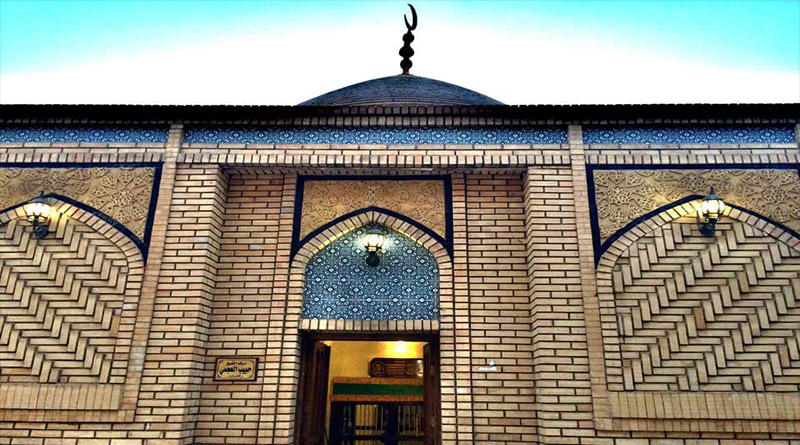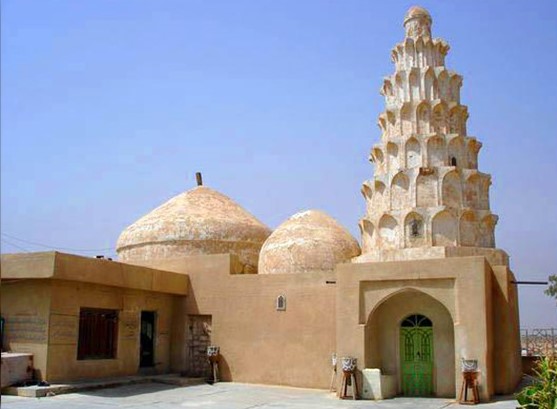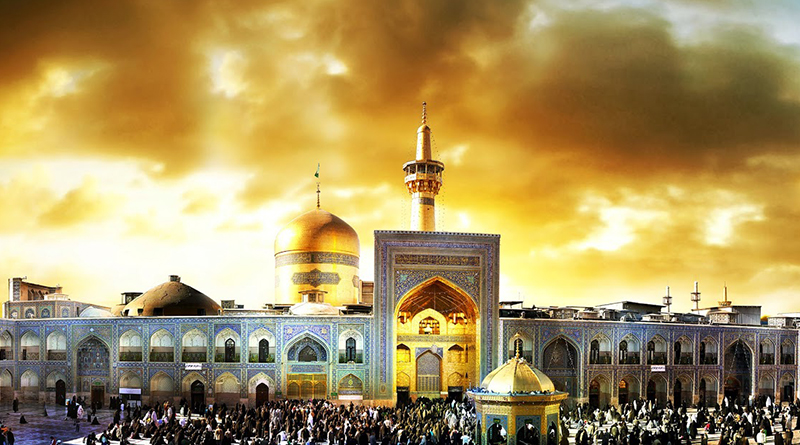Birth and Early Life
Sayyid Sheikh ʿAbd al‑Karim al‑Kasnazani was born in 1336 AH (1915 CE) in the village of Karbejnah, into a devout and spiritually rooted family. His father, Sayyid Sheikh ʿAbd al‑Qadir al‑Kasnazani (may God sanctify his secret), served as a Sufi master and spiritual guide, followed by his brother Sheikh Sultan Hussein (may God sanctify his secret). ʿAbd al‑Karim was raised under their care, absorbing the spiritual discipline and sacred knowledge they embodied.
From an early age, he exhibited remarkable generosity and compassion. It is reported that as a young boy, he would request a sheep from his father in order to slaughter it and distribute the meat among the village children. When others objected, his father replied, “Grant his request—these children have a right upon him that you do not perceive.” He consistently showed deep affection for the needy, often prioritizing them above himself—even before reaching the age of ten.
Despite his youth, his peers looked to him as a wise mediator in their disputes. Elders who witnessed his fairness and presence shared their admiration with his father, who in turn nurtured and encouraged his gifts.
He was regarded as a young shoot of a noble tree, possessing spiritual sensitivity and inner purity. He delighted in humbly standing in the presence of the Sheikh, and his reverence inspired others to adopt a similar attitude. As he matured, he cultivated equestrian skills and spiritual discipline, often venturing out alone on horseback for hunting and contemplation. His devotion to the Qur’an and the Prophetic Sunnah, along with his commitment to worship, solitude, and spiritual striving, elevated him to the rank of wilāya (spiritual proximity to God).
Sheikh Sultan Hussein held him in great esteem for both his humility and spiritual depth. He would often take him on secluded nighttime retreats in the mountains, during which ʿAbd al‑Karim served as both companion and caretaker. He became the link between the secluded Sheikh and the disciples, and before his passing, Sheikh Sultan Hussein officially entrusted him with the spiritual leadership of the path, instructing the followers to turn to ʿAbd al‑Karim for guidance.
Following his predecessor’s death, Sheikh ʿAbd al‑Karim assumed the spiritual mantle with dedication and sincerity, continuing the gatherings of remembrance and guiding disciples with care and devotion.
His Noble Character
Sheikh ʿAbd al‑Karim inherited the spiritual virtues of his ancestors. He was passionate about horsemanship, and known for his generosity, bravery, and dignity. Yet, his character was marked by patience and gentleness; he never acted out of personal anger, only expressing displeasure when required by divine justice. His words were clear, measured, and joyful when speaking of God—frank in counsel, yet full of warmth to those with open hearts.
He was a man of resolute will, noble manners, and deep compassion for the poor. He would jest with them, bring them comfort, and invite them into his presence as beloved companions. He showed particular care for orphans and widows, providing for them generously. He was quick to defend the weak against injustice and prideful oppression.
His spiritual gatherings were sanctified spaces—welcoming only those with sincere repentance and genuine faith. He sustained the family’s sacred legacy by teaching the path and nurturing the hearts of seekers.
More than ritual guidance, he taught akhlaq (virtuous character), sincerity, and inward refinement. He was the anchor of the Qadirī Kasnazani Order during his era, calling disciples to faith, humility, and purity of soul.
His Compassion and Spiritual Mercy
He found joy in a seeker’s repentance and would pray earnestly for their guidance. His heart overflowed with tenderness for those who approached in sincerity. He spoke softly, encouraging souls toward God and offering comfort—especially to the impoverished. Even when faced with wrongdoing, he would often pardon and advise patience, saying:
> “God sees us and them—so endure and seek your reward from Him. He will guide them.”
His words often opened hearts and drew even the oppressors to repentance.
His Trust in God
Absolute reliance upon God defined his life. He never gave in to despair. When people sought his prayers, he would respond with serene confidence:
> “On God—God is Generous, my son.”
This statement alone often brought comfort and healing. His generosity was boundless, except in cases where giving might spiritually harm a disciple. He consistently warned against attachment to worldly pleasures, describing them as seductive and dangerous distractions from divine purpose.
His Seclusion (Iʿtikāf)
He maintained a daily regimen of solitude in a corner of a small room, sitting on a mat with the Qur’an before him and a sword hanging behind him on the wall. Most of his time was spent in reading the Qur’an, offering additional prayers, and prolonged prostration. He would often remain in prostration from Maghrib until the Isha prayer call, weeping in remembrance.
He regularly rose for the night prayer (tahajjud), supplicated with tears, and was rarely seen laughing. He fasted most days and sustained himself with minimal food—usually just water or a small meal—and occasionally drank tea. Every detail of his lifestyle reflected deep ascetic discipline.
His Asceticism (Zuhd)
A model of asceticism, Sheikh ʿAbd al‑Karim consistently warned against the allure of worldly life. He would say:
> “It is soft to the touch, but sharp of tooth and poisonous in tongue. Our only true capital is what we were created for: ‘I created jinn and humankind only to worship Me.’”
His clothing reflected his detachment: simple, coarse garments worn until threadbare, plain cotton shoes. His appearance, speech, and manner radiated renunciation of the worldly and longing for the hereafter. In his presence, worldly attachments melted away and the love of the eternal took root.
His Migrations and Spiritual Outreach
He migrated to Myrkhow in Iran, where thousands of disciples gathered around him. After guiding them for about a year, he moved to Sanandaj, establishing centers and appointing spiritual deputies. He later relocated to Mashhad, where he met tribal leaders and attracted more followers.
As his popularity grew, travel became difficult, with thousands accompanying him from place to place. His journey took him throughout Iran—Tehran, back to Myrkhow, then to Banjuin in Iraq, where he established a tekkiye (Sufi lodge) and a residence near the Iran–Iraq border. There, he continued calling people away from worldly distractions and toward purification of the soul. His teachings reached beyond the region—to Afghanistan, Pakistan, India, and parts of Africa such as Zambia, where centers of guidance were established.
Eventually, he returned to Karbejnah and later settled in Kirkuk after extensive travels across Iraq—Baghdad, Nineveh, Babylon, Najaf, Anbar, Tikrit, Erbil, Sulaymaniyah, and others—where he oversaw the establishment of numerous centers. In Kirkuk, he organized a Hajj caravan for his poor disciples to perform the pilgrimage.
He remained a luminous guide until his passing in 1399 AH, after which his son, Sayyid Sheikh Muhammad al‑Kasnazani, succeeded him as the spiritual leader of the order.
His Miracles (Karāmāt)
Sheikh ʿAbd al‑Karim was widely known for extraordinary spiritual miracles that served Islam and its people. With his permission, some of his disciples performed miraculous acts—handling live electric wires, eating snakes and scorpions, enduring gunshots or blows to the head with knives, and walking through fire—all of which became signs of divine protection and spiritual presence.
He was also known to invoke healing for those suffering from illnesses such as cancer, infertility, epilepsy, heart conditions, depression, and mental disturbances.
In one case, he intervened on behalf of a disciple sentenced to 20 years in prison; due to his intercession, the disciple was released after only three years. In another instance, a man with terminal cancer was cured after the Sheikh revealed that his illness stemmed from an untreated snakebite forty years earlier. The man was given milk and recovered swiftly.
Source: Sheikh Muhammad al‑Kasnazani, The Exalted Qadirī Kasnazani Path, p. 356.




